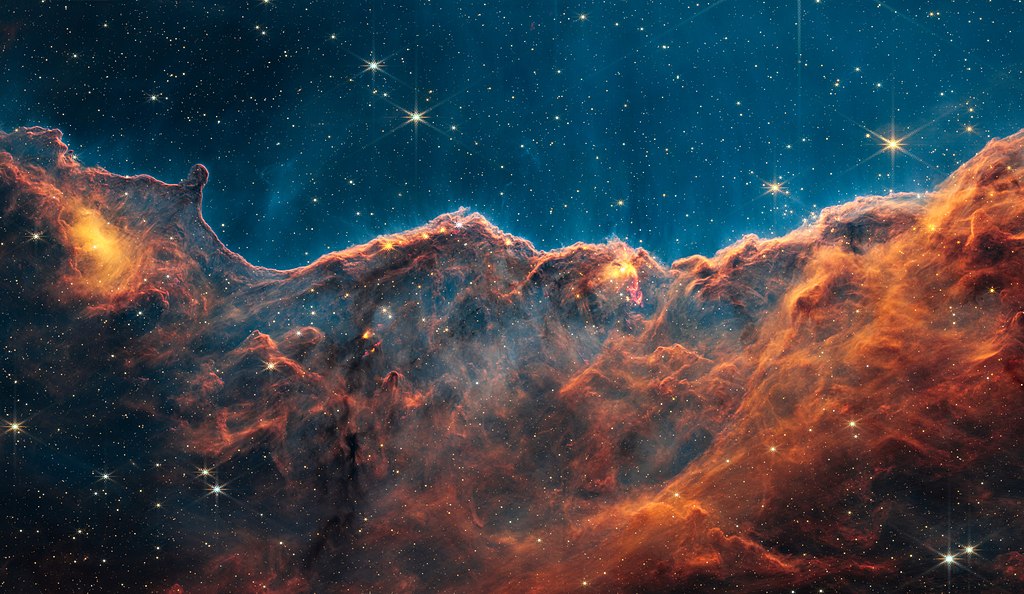I would be quite remiss if I didn’t write something today with regards to it being the 20th anniversary of the Space Shuttle Columbia disaster. The thing is, however, I have nothing more to truly say that hasn’t been said in my entries back on the 15th anniversary of the vehicles launch and planned landing, nor do I wish to focus on or re-tread the events of that dark day.
Over the years this event which, by a very dark coincidence, happened the day after I turned 18, signifies the end of what is a strangely dark period in United States space history — all 3 of the major disasters to happen in our nations space program — Apollo 1, Challenger, and Columbia, happened between January 27th to February 1st. Thankfully we have not had a major issue since the loss of Columbia, but, sadly, it’s almost inevitable another disaster will happen. It’s just a statistical fact; one that, hopefully, will be a long time in coming.
We’re in a new era, these 20 years since the loss of Columbia. The destruction of that orbiter and the loss of its crew of amazing people set the Shuttle Program on its course for retirement in 2011. Only in the past few years have we finally had domestic launch services again send humans to space from the United States — that being firstly the SpaceX Crew Dragon vehicle, soon the be followed by crewed flights of the Boeing Starliner — the vehicles basically being dedicated to ISS missions, oddly in much the same way the Russian Soyuz has been used.
Then there are SLS, Orion, and the Artemis program. That’s one aspect of the Shuttle that is alive and well, is Artemis — the child of the Space Shuttle program. Using surplus hardware in the form of the RS-25 Space Shuttle Main Engines and Shuttle derived Solid Rocket Boosters, SLS, which has proven itself on one flight so far, is an absolute beast of a launch vehicle, designed for us to return humans to the Moon. Orion uses surplus Space Shuttle Orbital Maneuvering Engines for its own propulsion, basically being the new Apollo, if you know your history. Orion, of course, also proved itself on the Artemis 1 mission late last year. While a very reserved program in terms of launches and general aggressiveness in accomplishing its goal, Artemis is nonetheless an active program; one I’m excited to be able to see happen for myself, in much the same way all of our parents or grandparents got to experience Apollo.
Still, it’s all risky. It will never not be risky. That’s the thing about humans, though — we know the risks, and yet we still do things. Ancient mariners traveled the seas in search of what treasures may be found on new lands. We’ve climbed the tallest mountains, dived to the lowest depths, pushed through jungles, deserts, anything and everything, simply because we, as a species, have an innate desire to know what lies beyond. It’s always been risky, but it’s always worked out for us in the long run. We wouldn’t be the dominant species on the planet if we didn’t explore like this. It’s just in our genes.
Space is just an expansion of that drive. We just have to know what’s really out there, and as has been brought up before, only a human can describe something in terms a human will understand. Machines are great, but no number of probes will be able to quite the same job a human can on truly putting it all in perspective.

I ordered a custom knife in late December as a present to myself, for making it through a very difficult year. I had my name engraved on it, along with a Latin phrase — Ad Astra.
To the Stars.
This is shortened from the phrase “Per Aspera ad Astra” which roughly means “A rough road leads to the stars.” The phrase is traditionally used in reference to those we, as a species, have lost in the quest to understand the universe around us. Not just our Apollo and Shuttle losses but also the former Soviet Union and the loss of the crews of Soyuz 1 and Soyuz 11, as well as, of course, the sad inevitable future losses we will experience.
Space has been something I’ve loved since before I can remember, and the vast majority of my personal heroes are related to space exploration in some way, be they scientists or actual astronauts / cosmonauts who have been to Earth Orbit or even the Moon. To that end, me having the phrase Ad Astra on the knife feels beyond fitting of my support for continued human exploration as far as we possibly can go, as well as my support for all the effort we’ve already made in that endeavor, even when that effort has, sadly, resulted in tragedy. They all knew the possible risks, and still chose to help advance humanity one launch at a time.
It’s a fire that inspires me every day. To learn. To try to understand the universe a bit more. To appreciate what makes each person special, what makes our world special, and our place in the universe unique.
It isn’t because we are some kind of special creation — we aren’t. We’re a product of this planet, able to, if only faintly, grasp the true scale of the cosmos and be crazy enough to say “let’s go up there and experience it ourselves.”
It’s almost crazy… almost… but again, it’s an itch we can’t avoid scratching. We just have to go.
To all those who paved the way, thank you. To those we lost along that rough road, we’ll never forget you, and to those in the future who will set foot on Mars and beyond, never give up. Keep pushing as far as you can. You’ve got the support of generations behind you.
Ad Astra
